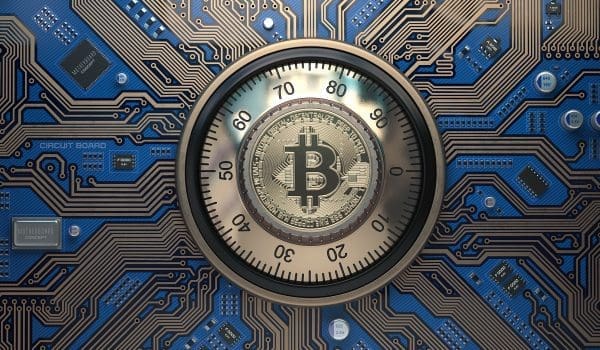Community Banks need to be aware of the risks posed by cryptocurrencies like Bitcoin, because their prevalence will only increase, writes the Federal Reserve Bank of San Francisco. Wallace Young, the Director of the Federal Reserve Bank of San Francisco, in the recent article “What Community Bankers Should Know About Virtual Currencies” in Community Banking Connections, outlines four risks undertaken by community banks that interact with businesses in the virtual currency ecosystem: Compliance, Reputational, Credit, and Operational.
Compliance Risk
Compliance risk is deemed the most significant. In short, the legal/compliance risks are the same commonly encountered when banking money transmitters, plus other compliance risk issues unique to the cryptocurrency space. Community banks are advised to be especially diligent in understanding the business activities of virtual currency customers in order to safeguard themselves from illegal business activity and suspicious individual transactions.
The U.S. Financial Crimes Enforcement Network (“FinCEN”) designates virtual currency exchanges and administrators as money transmitters. This designation encumbers such entities with recordkeeping and reporting responsibilities, along with a number of other compliance and licensing requirements. Wallace noted that the Bank Secrecy Act/Anti-Money Laundering Examination Manual, a compilation of regulatory requirements, supervisory expectations, and best practices for BSA/AML compliance, provides community banks with a detailed discussion of money transmitter regulations.
Reputational Risk
The article’s discussion of reputational risk does little to cleanse virtual currencies of the negative stigma that has plagued the industry since the fall of Mt. Gox in 2014. Mizuho Bank, a Japanese bank that leant money to Mt. Gox, was named in several suits filed in U.S. Federal Courts after the half-billion-dollar collapse. Specifically, litigants alleged that Mizuho “directly benefited from Mt. Gox’s fraudulent and unfair conduct.” Mizuho illustrates the reputational damage that may result from dealing with a failed virtual currency firm.
Further, due to the less than transparent nature of virtual currency transactions, several illegal enterprises have adopted Bitcoin as the primary mechanism to facilitate transactions to which no reputable bank would be a willing participant. As a result, banks are advised to consider additional due diligence and monitoring to mitigate potential reputational risk issues which might be associated with virtual currency operators.
Credit Risk
Credit risk is inherent when dealing with digital money. In 2015 alone, the value of Bitcoin has fluctuated between $177.28 and $309.98. Bankers should “carefully weigh the pros and cons of extending any loan secured by bitcoins or other virtual currencies (in whole or in part), or where the source of loan repayment is in some way dependent on the virtual currency.” In support of this warning, Wallace’s article points to the Bitcoin’s volatility, along with difficulties in perfecting a lien on virtual currency collateral. The article advises bankers to work with experienced legal counsel to carefully craft loan agreements in order to avoid uncertainty with secondary-sources of recovery in the case of a borrower’s default.
Operational Risk
Finally, and perhaps most interestingly, the article discusses a community bank’s operational risks in possessing virtual currencies. While this would most likely occur only after collection of a defaulted borrower, the bank needs to have a plan in place for how it will hold and liquidate such unusual collateral. Planning needs to include the old-school type of internal control issues, similar to what happens when a special assets department recovers cash or valuable personalty, but also planning unique to cryptocurrency, like how it will be valued, liquidated and kept safe from cyber attack or meddling. Wallace’s article recommends the immediate liquidation of such recovered collateral, which by itself may be a challenge for bankers, given issues about market pricing of the asset in juxtaposition to basic safety-and-soundness principals of minimizing loan-loss through justifiable disposition.

